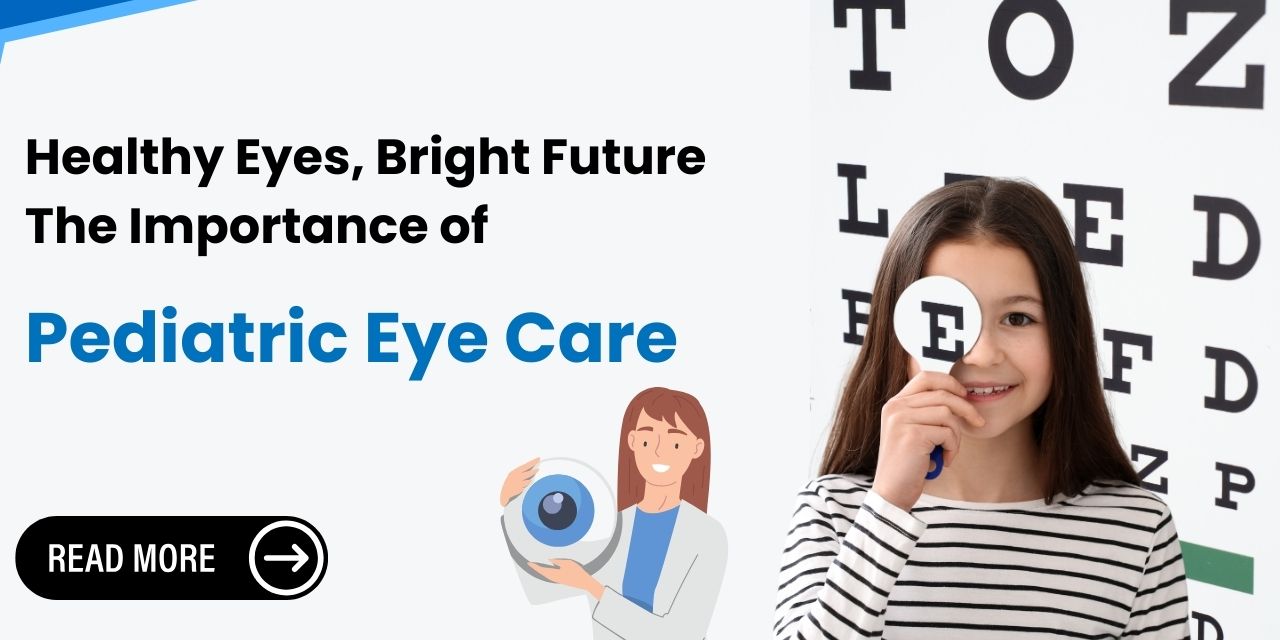Ensuring your child’s eyes are healthy is a critical aspect of their overall development. Pediatric eye care plays a crucial role in detecting and treating vision problems early, which can have a significant impact on a child’s learning, social skills, and overall well-being.
The Importance of Early Eye Exams
Early eye exams are essential for identifying potential vision issues that could hinder a child’s development. Conditions such as amblyopia (lazy eye), strabismus (crossed eyes), and refractive errors (like nearsightedness or farsightedness) can often be detected during routine check-ups. Early detection allows for timely intervention, which can prevent these conditions from worsening and help ensure your child’s vision develops properly.
How Vision Impacts Learning and Social Skills
Vision is closely linked to a child’s ability to learn and interact with others. Poor vision can make it difficult for children to read, write, and participate in classroom activities, leading to academic struggles. Additionally, children with untreated vision problems may find it challenging to engage in social activities, potentially leading to issues with self-esteem and social development.
Common Pediatric Eye Conditions
There are several eye conditions that commonly affect children, each requiring early intervention for the best outcomes:
- Amblyopia (Lazy Eye): A condition where one eye is weaker than the other, leading to poor vision in the affected eye.
- Strabismus (Crossed Eyes): A misalignment of the eyes that can lead to double vision or difficulty in seeing clearly.
- Refractive Errors: Conditions like myopia (nearsightedness), hyperopia (farsightedness), and astigmatism can affect a child’s ability to see clearly at different distances.
The Role of Pediatric Eye Specialists
Pediatric eye specialists are trained to identify and treat eye conditions that specifically affect children. They use child-friendly examination techniques and equipment to assess your child’s vision and recommend appropriate treatments, such as glasses, eye patches, or even surgery if necessary. Regular visits to a pediatric eye specialist can ensure that any issues are addressed early, promoting healthy eye development.
How Often Should Your Child See an Eye Doctor?
It is recommended that children have their first eye exam at six months of age, followed by another at three years old, and then just before they start school. After that, regular eye exams should be conducted every one to two years, or as recommended by your eye doctor. This schedule helps catch and correct vision problems early, ensuring your child’s visual development stays on track.
Frequently Asked Questions
👉 Why is early detection of eye problems important in children?
Early detection is crucial because it allows for timely intervention, preventing vision problems from worsening and ensuring proper visual development, which is vital for learning and social skills.
👉 How can poor vision affect my child’s learning?
Poor vision can make it difficult for your child to read, write, and focus in class, leading to academic struggles. It can also impact their ability to participate in activities and interact with peers.
👉 What are the signs that my child might have a vision problem?
Common signs include squinting, sitting too close to the TV, frequent eye rubbing, difficulty concentrating, and complaints of headaches or blurred vision. If you notice these signs, it’s important to schedule an eye exam.
👉 At what age should my child have their first eye exam?
Your child should have their first eye exam at six months old, another at three years old, and then again before starting school. Regular exams should continue every one to two years after that.
👉 How does pediatric eye care differ from adult eye care?
Pediatric eye care focuses on the unique vision needs and development of children. Pediatric eye specialists are trained to use techniques and equipment designed specifically for children to ensure accurate diagnoses and effective treatments.
Conclusion
Prioritising pediatric eye care is vital for your child’s overall development, ensuring that vision problems are detected and treated early. Regular eye exams and timely interventions can significantly improve your child’s ability to learn and interact socially. Trusting your child’s eye health to a specialist like Dr. P.C. Sharma at PC Sharma Eye Hospital Ambala ensures that they receive the best possible care from the best eye surgeon of Ambala. By doing so, you are investing in their future and helping them achieve their full potential.To get more information please contact us on : +919896081381

